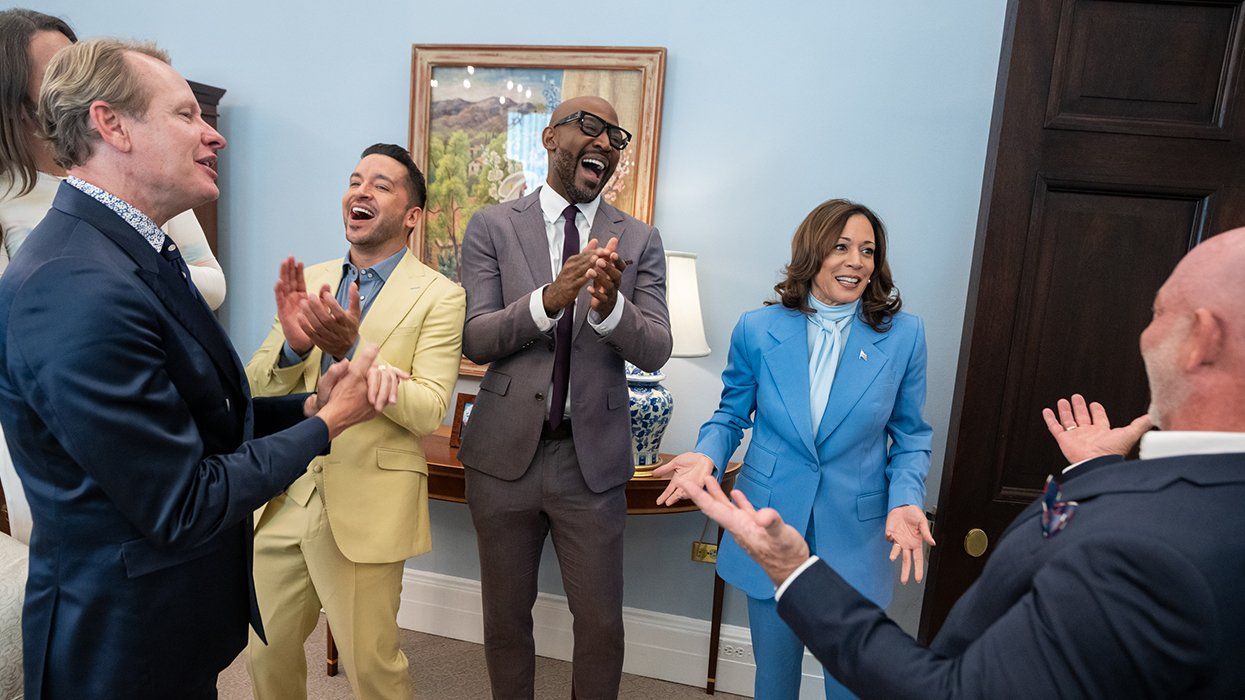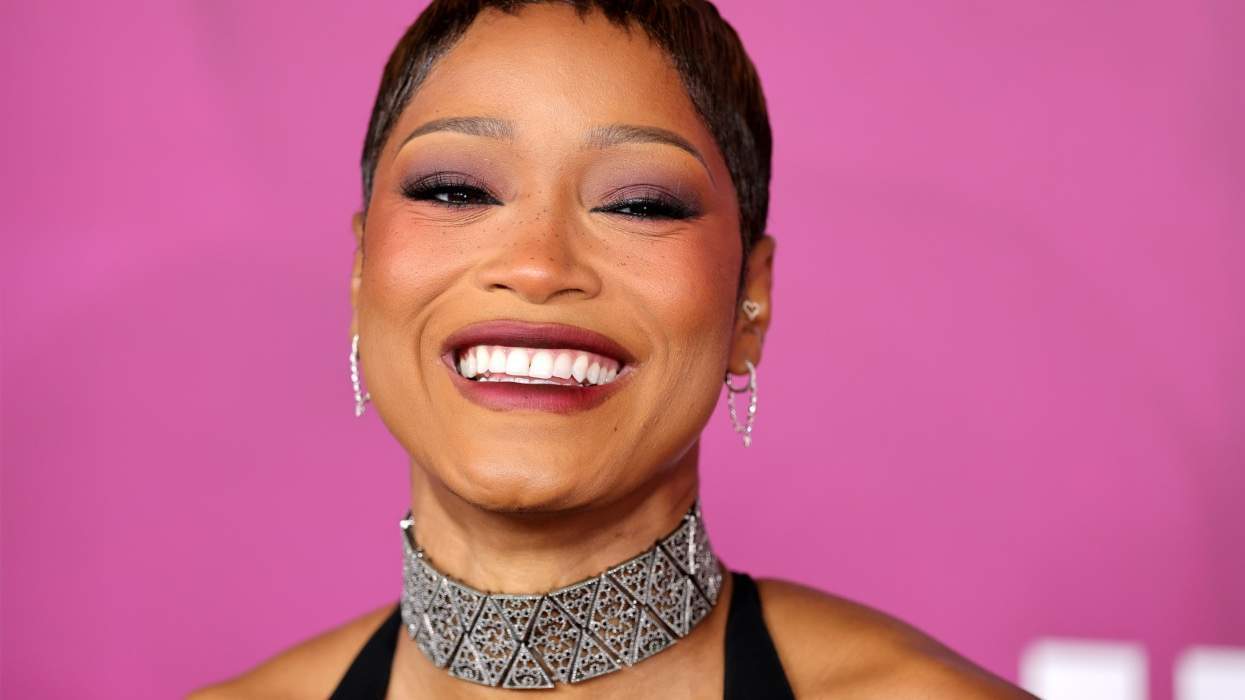The White House hosted an event on Thursday to celebrate the 20th anniversary of the seminal television series Queer Eye for the Striaght Guy and its current reiteration Queer Eye. Vice President Kamala Harris welcomed the show’s creators and cast members, both past and present, to reflect on two decades of LGBTQ+ representation and advocacy.
Among those in attendance were original cast members Carson Kressley and Jai Rodriguez, current cast members Karamo Brown and Jonathan Van Ness, and co-creators and executive producers David Collins and Michael Williams.
Queer Eye for the Straight Guy, as it was originally known, broke new ground on Bravo, bringing a different sort of LGBTQ+ visibility into American living rooms. The show’s impact has continued with its revival on Netflix, providing a platform for discussions on identity, acceptance, and social justice.
Harris and the Queer Eye team engaged in a frank conversation about the intersectionality of struggles faced by the LGBTQ+ community. Harris remarked on the interconnected nature of civil rights movements and the necessity of collective freedom.
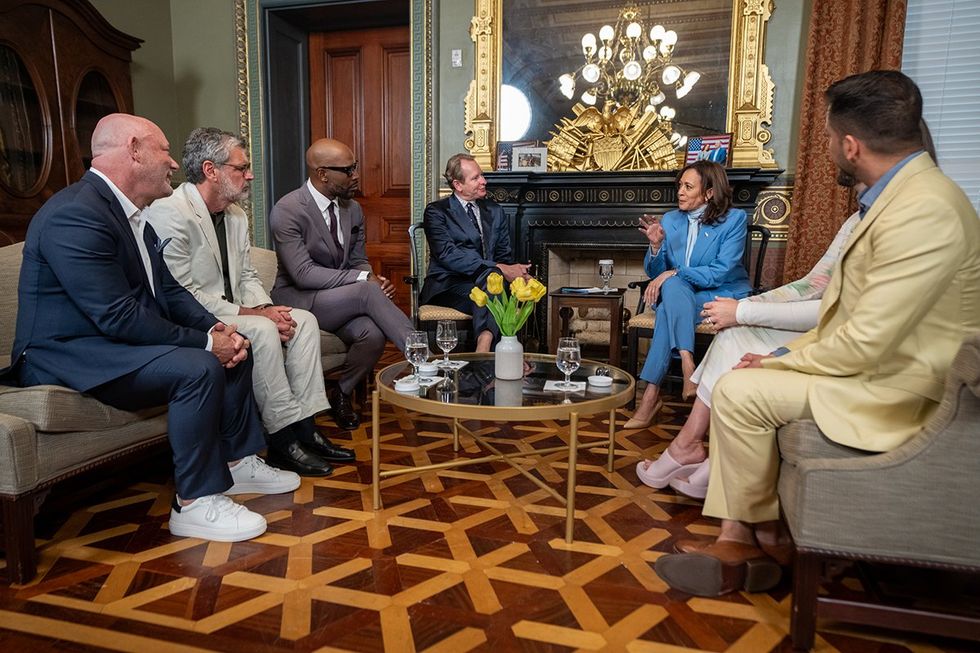
Van Ness shared their personal experience living with HIV, revealing that they found out their status at Planned Parenthood. “I’ve been living with HIV for over 10 years, and it’s so important to think about funding, intersectionality, and making sure we can protect institutions that are protecting people,” Van Ness said.
Harris emphasized the critical role of institutions like Planned Parenthood.
“I went to a Planned Parenthood clinic a few months ago now because I wanted to highlight this point, which is that when all of these abortion bans happened in the states, where clinics have had to shut down,” Harris said. “They provide so much care, Including HIV testing; they provide…screenings of every sort. And the thing about these clinics, which I’m sure you could talk about, is that they give people dignity. They’re trusted; they’re in touch with the community. People know that that’s a place you can go for healthcare where you will receive dignity and you’ll not be judged. And that’s so important.”
Related: Kamala Harris: Supreme Court mifepristone ruling doesn’t mean abortion is safe under Trump
In the discussion, Rodriguez brought up the fears many in the LGBTQ+ community have about accessing healthcare.
“People are scared to ask about getting HIV tested or, even if you find out that you are positive, to have a doctor that’s going to give you proper medications or preventative things like PrEP,” he said. “People are scared to ask their physician because they have to come out to them, and that might not be a safe environment with that doctor.”
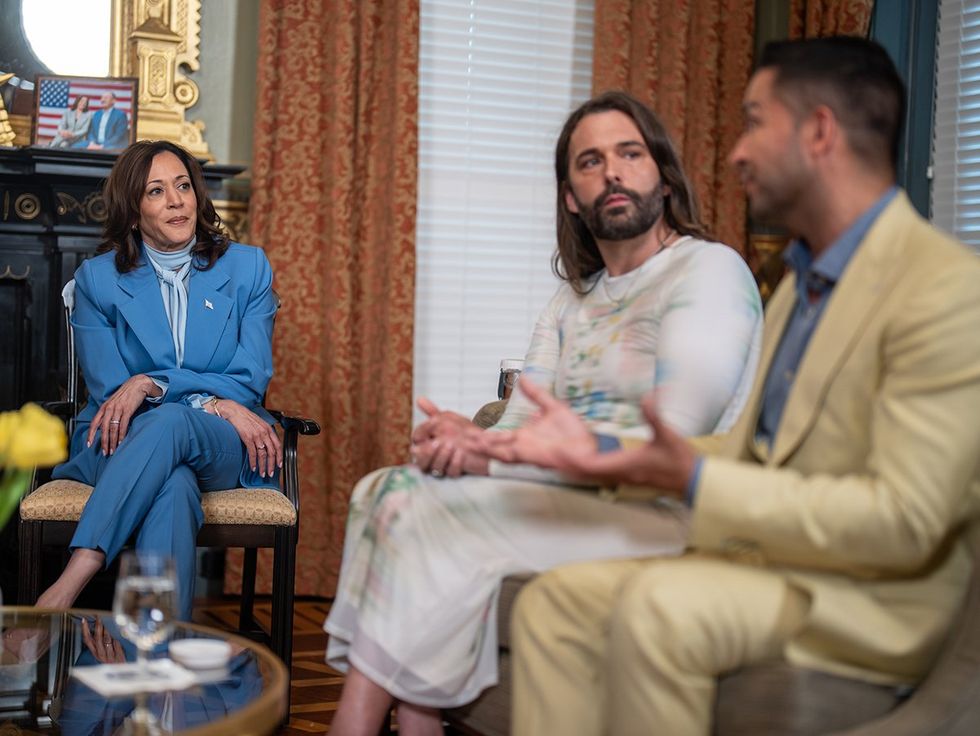
The conversation also went to the very beginnings of Queer Eye. Collins recounted how the idea for Queer Eye even came to be.
He described a moment in Boston, Mass., when he and his partner, Williams, were observing a social event. “We walked into this big studio warehouse with a hundred people all looking at art, drinking their champagne, eating cheese, and all of a sudden, this weird hush came over the room,” he said. “Some woman just started berating her husband, and then, unbelievably, four handsome, well-dressed men came strolling across the room, surrounded the man, and started loving on him. I turned to Michael and said, ‘Did you see that? That was a queer eye for the straight guy!’”
This spontaneous moment sparked the idea that would become a cultural phenomenon.
Collins expressed his amazement at the show’s lasting impact.
“We’ve said it 8 million times today, people who can believe, who would’ve thought something that we came up with a while ago would still make such a big difference. We brought it back to Netflix, and it’s still having the same effect on people,” he told The Advocate.
Williams noted that the show is an homage to the queer community.
“What I love about all of us being here today is that it’s affirming and celebrating who we are. Especially having daughters, I want to affirm them for who they are and celebrate them. That, to me, is the beauty of Queer Eye’s legacy.”
Collins also told Harris about the challenges and triumphs of parenthood through IVF access in the LGBTQ+ community.
“I do say a lot that confidence breeds success. When I tell you something about myself, and you tell me, we see each other and share our connection, our humanity, and that’s the heart of what Jonathan and Karamo and our teams do,” Collins said. “Twenty years of this for Michael and I to look at; we’re proud Papa and Daddy. We have 15-year-old daughters, and we have a daughter who has really never had to come out. She identifies as lesbian. When she was five, she caught my eye in the rear mirror and said, ‘Daddy, I’m a girl and like boy’s things. And I was like, I’m a boy and love girls’ things!”
He added, “She’s never had to live in a world where that fear of coming out was part of her existence. She just gets to be Ella. And Ella is Ella.”
Collins added, “This journey to become parents was a big deal for us, and I hope it’s easier for young gay couples now.”
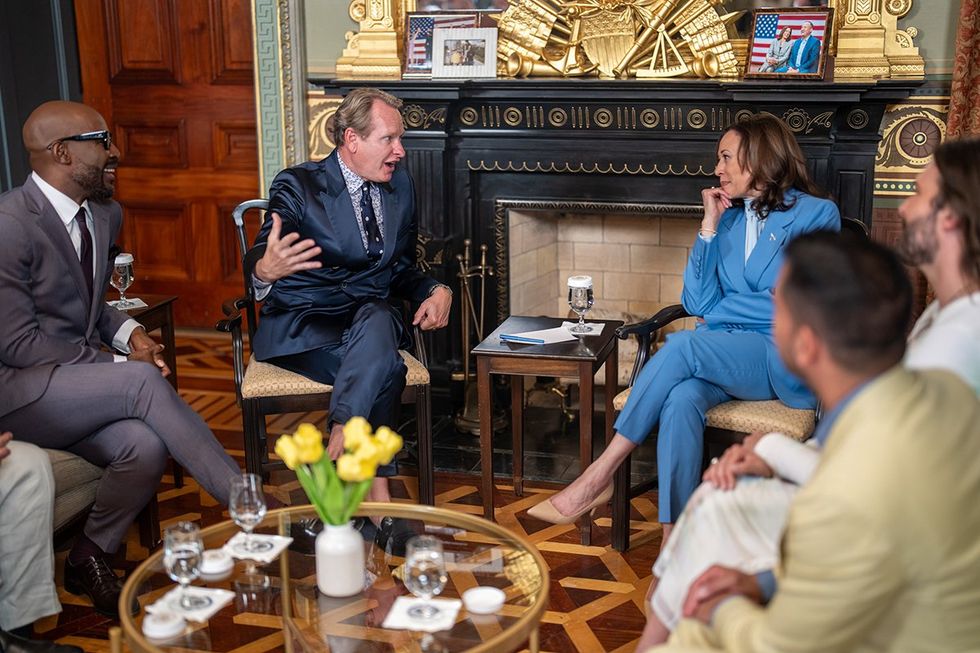
Kressley told The Advocate about the show’s role in fostering understanding. “The point of Queer Eye for the Straight Guy’, I thought, was to get rid of mullets and pleated khakis,” he joked. “But actually, the point was to have a conversation with people and say, ‘I’m gay. You’re straight. We’re actually not that different.’ We all want the same thing, which is love and respect and belonging and our freedoms.”
The stars also spoke about the difficulties queer communities still face. Van Ness elaborated on the ongoing challenges encountered by the LGBTQ+ community under the current political climate and called for unity and political engagement.
“Our community is under attack,” they said. “We have so many state legislators and even our Congress at the moment that are very excited to take away and curtail as many freedoms and demonize and scapegoat queer people as much as possible. It’s important for our community and our allies not to be single-issue voters. There are so many issues that affect so many folks.”
Van Ness, who is nonbinary, also shared a personal experience highlighting the dangers and discrimination faced by queer individuals. They recounted an incident in a Las Vegas bathroom where they felt unsafe after realizing several women began filming Van Ness.
“I’ve never experienced intimidation in a bathroom in the way that I did in Vegas. It made me think about people who have had horrific things happen to them in bathrooms, but then queer people are the ones scapegoated for these instances. It’s really the patriarchy and this toxic structure of the binary that we have to exist within.”
Harris ended Thursday's conversation by noting the importance of engagement to move forward the progress Queer Eye has helped push for.
“This election in November is asking each of us a very fundamental question: What kinds of country do we want? And we each have the power to answer that,” Harris said. She added, “It gives me a sense of optimism... knowing that the majority of us, I think, do value certain things, including that we fight for each other’s dignity, that we agree to the foundational principles of our country. All are equal and entitled to certain freedoms and certain rights that cannot be taken.”
